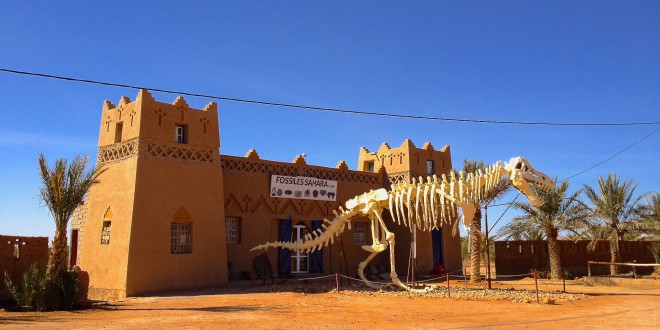
Morocco: desert town risks losing ancient treasures
The town of Erfoud in the middle of a palm grove in Morocco’s eastern desert watches over a rare treasure – petrified skeletons of prehistoric creatures. The oasis town, home to around 30,000 people, has been called by archaeologists and geologists as “the largest open air fossil museum in the world”.
According to locals, the town was under the sea during the Paleozoic era, around 540 to 250 million years ago. Today, it has around 500 varieties of fossils, including 500-410 million year old trilobites, spread across 100 square kilometers.
However, scientists warn that lax controls over the sale of fossils and over-excavation could seriously damage the town’s cultural and archaeological heritage.
Erfoud’s museum, once an exhibition space, has several craftsmen cutting, carving and polishing freshly-dug fossils. After moving blocks of stone from the quarry on the town’s outskirts, workers cut them, after which they are sculpted by artisans into several objects, including bathtubs, fountains and even tables.
Several buildings in the town also house rare fossils, treasures which locals presume are valuable and guard jealously. The smallest pieces are sold at around $380, while others pieces are valued by local collectors, and kept for their own private collection.
Among the fossils in the area are petrified dinosaur, turtle and crocodile skeletons, some dating back to 65 million years.
However, Professor Lachen Kabiri from the University of Errachidia says that such historical treasures are under threat – he cites over-excavation, harsh rise in the number of excavation sites and traders selling fossils at cheaper prices as reasons for concern.
“Erfoud is world famous but its scientific development (is lacking)”, Kabiri said.
The eastern desert is a part of a biosphere reserve protected by UNESCO and an agreement made in 1970 which prevents illegal export and import of cultural artifacts in the region. Moroccan law also prohibits illicit trade, without mentioning fossils specifically. Nevertheless, fossils are sold in bazaars in southeast Morocco, many of which end up in museums in North America and Europe.
 The Arab Democrat The Latest From The Arab World
The Arab Democrat The Latest From The Arab World





